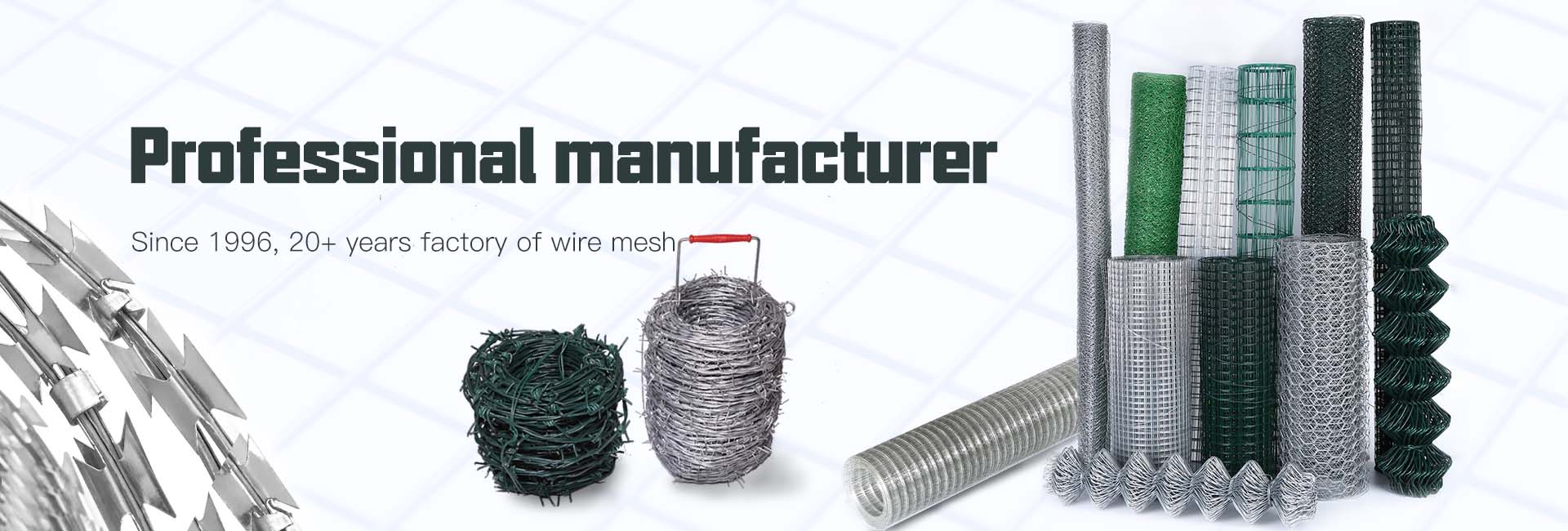Nov . 20, 2024 07:08 Back to list
expanded mesh panel quotes
Understanding Expanded Mesh Panel Quotes
Expanded mesh panels have become increasingly popular in various industries due to their versatility, durability, and aesthetic appeal. These panels are created by cutting and stretching metal sheets to form a mesh-like structure with a series of openings, which can range in size and shape. This article explores the various elements that contribute to quotes for expanded mesh panels, including factors affecting pricing, applications, and the benefits they offer.
Factors Influencing Expanded Mesh Panel Quotes
1. Material Type The type of material used in the production of expanded mesh panels significantly affects the quote. Common materials include steel, aluminum, and stainless steel. Each material comes with its own cost implications based on factors like weight, corrosion resistance, and strength. For instance, aluminum usually offers a more lightweight and corrosion-resistant option but might be more expensive than standard steel.
2. Thickness and Size The thickness and dimensions of the panels also play a crucial role in determining the total cost. Thicker panels can bear more weight and resist bending, which is essential for industrial applications, but they also cost more to produce. Customers need to specify their required panel size, as larger panels typically come at a higher price point.
3. Opening Pattern and Customization The size and design of the openings within the mesh can vary significantly. Custom patterns might require specialized machinery and additional labor, contributing to higher quotes. Customers often seek specific designs to meet aesthetic or functional requirements, such as shading, ventilation, or security.
4. Quantity Ordered Bulk orders typically come with discounts as manufacturers prefer to sell larger quantities at once. Thus, the number of panels ordered can significantly impact the overall quote. Companies may find it more economical to purchase larger lots to drive down the per-unit cost.
5. Finish and Coating The surface finish applied to expanded mesh panels can also influence the pricing. Options such as powder coating, galvanizing, or painting enhance durability and aesthetics but can add to the baseline cost. Selecting the right finish is crucial for applications in harsh environments where corrosion or wear is a concern.
Applications of Expanded Mesh Panels
Expanded mesh panels have a wide range of applications across various sectors, which can also inform potential customers about their unique value
expanded mesh panel quotes

- Architectural Design In architecture, these panels are often utilized for facades, sunshades, and decorative elements. Their ability to allow light and air circulation while providing an interesting visual texture makes them popular in modern design.
- Industrial Uses In industrial settings, expanded mesh panels are frequently used for safety barriers, walkways, and machinery guards. The strength and airflow properties make them suitable for environments requiring both durability and ventilation.
- Food and Beverage Industry Expanded mesh is used in food processing areas for sieving, filtering, and support structures due to its hygienic properties and ease of cleaning
.Benefits of Using Expanded Mesh Panels
1. Versatility One of the most significant advantages is their versatility. Expanded mesh can be used in numerous applications, from construction to art installations.
2. Lightweight yet Strong Despite being lightweight, expanded mesh panels offer impressive strength and durability, making them suitable for various demanding applications.
3. Aesthetic Appeal The unique look of expanded mesh panels allows for creative designs that can enhance the beauty of a space while providing functionality.
4. Cost-effective When considering their longevity and minimal maintenance needs, expanded mesh panels can be a cost-effective solution over time.
Conclusion
When obtaining quotes for expanded mesh panels, potential buyers must consider various factors, including material choice, customization, size, and quantity. Understanding these elements not only aids in making informed purchasing decisions but also allows for leveraging the unique advantages of expanded mesh panels across different applications. As industries continue to evolve, expanded mesh panels will likely play an essential role in meeting the demands of modern design and functionality.
-
Durable Hot-Dip Galvanized Farm Field Wire Fence | Farm Security
NewsAug.01,2025
-
Temporary Fencing Solutions-Anping County Xingzhi Metal Wiremesh Products Co.,Ltd
NewsJul.31,2025
-
Hop Dipped Galvanized / PVC Coated Temporary Fence - Anping County Xingzhi Metal Wiremesh Products Co., Ltd.|Durable Temporary Fencing&Cost-Effective Security Solutions
NewsJul.31,2025
-
Hop Dipped Galvanized / PVC Coated Temporary Fence-Anping County Xingzhi Metal Wiremesh Products Co., Ltd|durable temporary fencing&corrosion-resistant solutions
NewsJul.31,2025
-
Temporary Fencing Solutions - Anping County Xingzhi Metal | Galvanized PVC Coated Fences
NewsJul.31,2025
-
358 Anti-Climb Welded Wire Mesh Fence - High Security, Durable
NewsJul.31,2025



